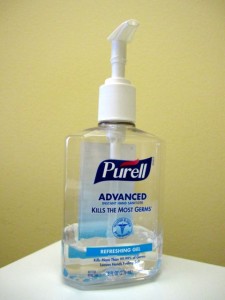 While NASA is busy sending rovers to Mars and hurling satellites into the furthest reaches of space, another branch of government is looking inward. Welcome to the Human Microbiome Project, an innovative program of the National Institutes of Health that is seeking to better understand our closest neighbors.
While NASA is busy sending rovers to Mars and hurling satellites into the furthest reaches of space, another branch of government is looking inward. Welcome to the Human Microbiome Project, an innovative program of the National Institutes of Health that is seeking to better understand our closest neighbors.
There are over 10,000 different microbial species living on and in us — hitchhikers that in almost all cases are happy to chip in a few bucks for gas, check the tires, or otherwise help make our trip through life more productive and stable. What’s more, these generous microscopic characters are often essential for our wellbeing, producing vitamins, protecting us from infection by more toxic bacterial competitors, and perhaps influencing our body weight.
Our microbial sycophants are so numerous that they outnumber our own cells by a factor of 10 to one. That’s 100 trillion bacterial cells we’ve got to shoulder. Luckily they don’t weigh much or we’d be overloaded and overcrowded.
The most interesting microbiome study this year concerns a human product no one likes to talk about — poop. In February, The New England Journal published amazing results of fecal transplantation for patients suffering from chronic C. difficile, a debilitating gut infection often associated with antibiotic use. A single treatment of donor feces cured an impressive 94% of patients.
While antibiotics have a clear association with opportunistic infections like C. diff, the relationship between antibiotic use and other gut illnesses is less clear. But a study in the American Journal of Epidemiology (which received far less press than it should have) documented the strong association between antibiotic use prior to age six and the subsequent development of inflammatory bowel disease (IBD), specifically Crohn’s disease.
The theory is that the alterations of gut flora that occur with antibiotic use may set patients up to develop IBD. Adding support to this theory are multiple small studies examining fecal transplantation in Crohn’s and ulcerative colitis patients, most of which showed favorable results.
Should we all be taking a probiotic supplement? After all, probiotics are loaded with the “good” bacteria that all those C. difficile patients are lacking — so the tempting answer is “yes.” But while the underlying data are suggestive, we don’t have much evidence that probiotics help outside of specific situations (giving a probiotic while on antibiotics, for example). And there is evidence that probiotics can produce complications of their own, though typically these case reports involve patients who have underlying immune compromise or chronic disease.
Future research will focus on conditions of disordered digestion and absorption that might benefit from repopulation or alteration of populations of gut bacteria. Unfortunately, the federal government has now decided to regulate donor feces as a “biologic product” — even though the procedure has been in practice for decades.
So be kind to your bacteria. Don’t use antibiotics unless absolutely necessary. Avoid antibacterial soaps (plain soap and water is just fine), antibacterial-impregnated household items, and toys. And for heaven’s sake don’t worry about a little tracked-in dirt. It might just be good for you.
